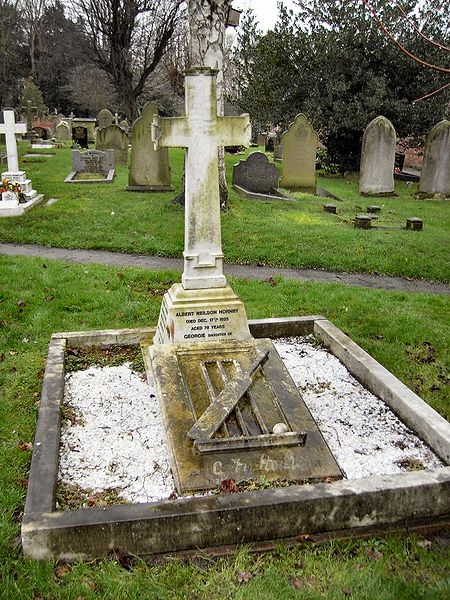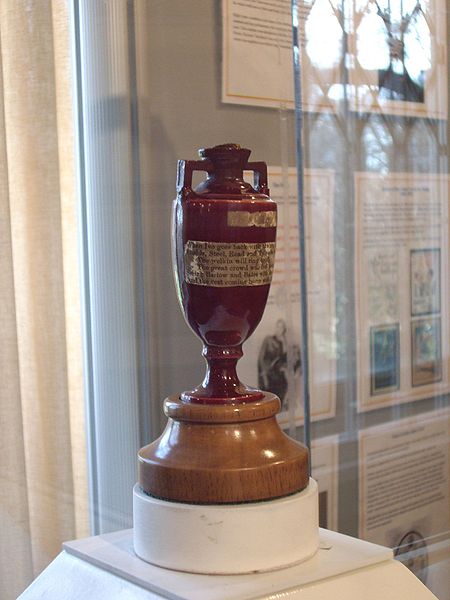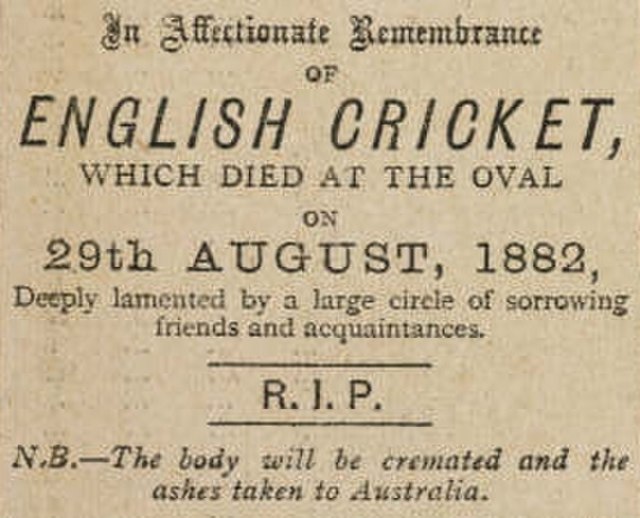Albert Neilson Hornby, nicknamed Monkey Hornby was one of the best-known sportsmen in England during the nineteenth century excelling in both rugby and cricket. He was the first of only two men to captain the country at both rugby and cricket but is also remembered as the England cricket captain whose side lost the Test match which gave rise to the Ashes, at home against the Australians in 1882. Additionally, he played football for Blackburn Rovers.
Hornby pictured in around 1895
Hornby in the 1890s
Tombstone of A.N. Hornby
The Ashes is a men's Test cricket series played biennially between England and Australia. The term originated in a satirical obituary published in a British newspaper, The Sporting Times, immediately after Australia's 1882 victory at The Oval, its first Test win on English soil. The obituary stated that English cricket had died, and that "the body will be cremated and the ashes taken to Australia". The mythical ashes immediately became associated with the 1882–83 series played in Australia, before which the English captain Ivo Bligh had vowed to "regain those ashes". The English media therefore dubbed the tour the quest to regain the Ashes.
The Ashes urn, made of terracotta and about 10.5 cm (4") tall, is reputed to contain the ashes of a burnt cricket bail.
Fred Spofforth, "The Demon Bowler", was instrumental in Australia's 1882 victory over England with 14 wickets for 90.
The death notice that appeared in The Sporting Times
The earliest published photo of the Ashes urn, from The Illustrated London News, 1921







